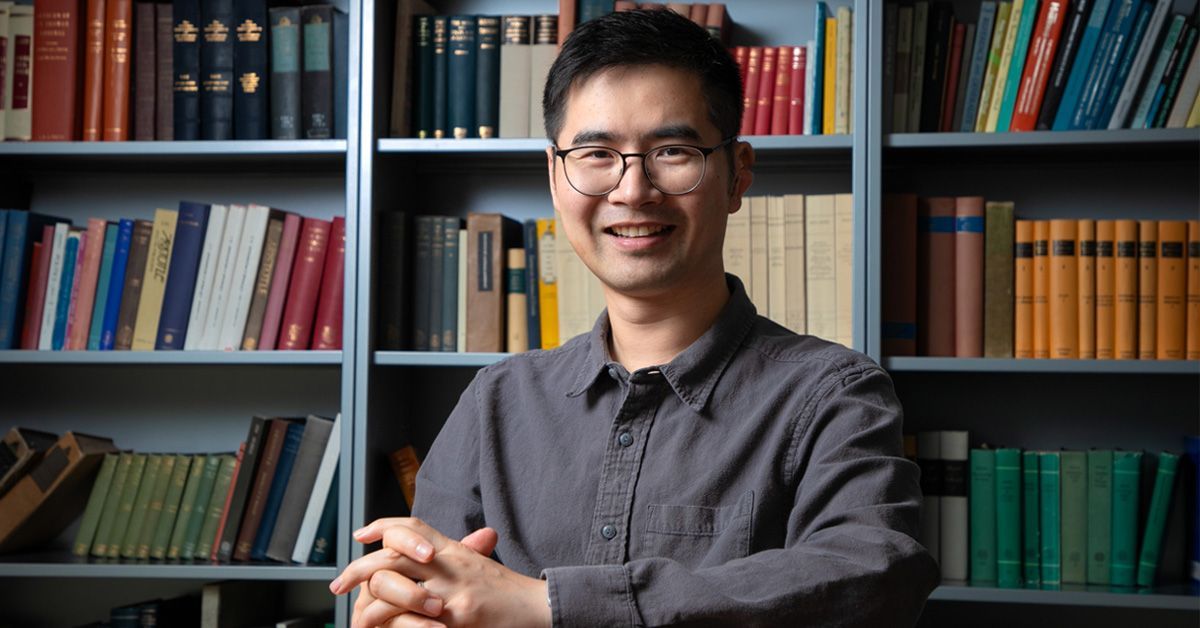Philosopher Eddy Keming Chen Receives $325K Grant to Explore the Nature of Reality
Story by:
Published Date
Article Content
Eddy Keming Chen, associate professor of philosophy at the University of California San Diego School of Arts and Humanities, has been awarded a $325,000 grant to explore the nature of quantum foundations. He will explore big questions about the smallest parts of our universe, like whether atoms and particles can exist simultaneously in different states within the physical realm.
Chen’s award represents a portion of a larger grant from the John Templeton Foundation, totaling $2.43 million, that establishes the Southern California Quantum Foundations Hub based at Chapman University. The mission of the Templeton Foundation is to support interdisciplinary research and catalyze conversations that inspire awe and wonder. They envision a world where people are curious about the wonders of the universe, free to pursue lives of meaning and purpose motivated by great and selfless love.
Bringing together an interdisciplinary team of philosophers, theoretical physicists and experimental physicists, the new center will focus on key topics in quantum foundations research and serve as the primary center of excellence for the field in the United States.
Three key themes will ground research activity: the nature of the quantum state, past and future boundary conditions and agency in quantum observers. Each team will apply their respective methods of inquiry to more deeply understand the nature of reality, with insights shared through regular seminars, annual conferences and public lectures.
Can probabilities be eliminated?
The science of physics is full of uncertainties. There’s even a rule called the “uncertainty principle,” which acknowledges that certain properties can’t be measured simultaneously. Chen seeks to better understand the nature of this uncertainty.
Working at the intersection of philosophy of physics and foundations of physics, Chen’s research contains two parts. First, he is exploring the applicability of the Pusey-Barrett-Rudolph (PBR) theorem—which suggests that all potential superpositions of a particle are part of reality—to both pure states and mixed states.
A pure state is represented by a single wave function, while mixed states can comprise several different wave functions. Chen suggests that mixed states may be part of a more accurate picture of quantum reality, a view that he calls “density matrix realism.”
“How much can we know of reality if quantum mechanics is correct?” asks Chen. “In science, you can verify everything if you have enough time and resources. But the laws of quantum mechanics are very different. They may actually conceal what reality truly is.”
Chen is also studying how nomic vagueness plays a role in quantum foundations. Nomic vagueness is the idea that our universe cannot always be described by precise laws. Instead, there are inherent gray areas that can’t always be precisely described. Chen is exploring this “fuzzy edge” concept in relation to final-time boundary conditions, or the behavior of a system when it reaches the end of its interval. He also seeks to discover whether nomic vagueness can be observed in the results of physical experiments.
“I am excited about the opportunity to think more deeply about these big questions,” said Chen, who has been studying the philosophy of physics and quantum foundations for years. “This grant enables me to be collaborative, working with both theoretical physicists and experimental physicists who work in the lab—a unique opportunity to merge theory and experimentation.”
Chen has developed a comprehensive framework for the realist interpretation of density matrices in all three major realist schools of thinking on quantum foundations: pilot-wave theories, dynamical collapse theories, and many worlds. His primary research interests are philosophy of physics, philosophy of science and metaphysics. In addition to being a member of the Department of Philosophy, Chen is an affiliate of UC San Diego’s Chinese Studies Program in the Institute of Arts and Humanities.
In addition to supporting Chen’s work, the Templeton Foundation’s grant also funds research conducted by Andrew Jordan (physics), Matt Leifer (physics), Emily Adlam (philosophy and physics), and Kelvin McQueen (philosophy) at Chapman University as well as Aephraim Steinberg at the University of Toronto (physics). Craig Callender, professor of philosophy and co-director of the Institute for Practical Ethics at UC San Diego, and Jeffrey Barrett, professor of
logic and philosophy of science at UC Irvine, are also unfunded collaborators on the project.
Stay in the Know
Keep up with all the latest from UC San Diego. Subscribe to the newsletter today.




